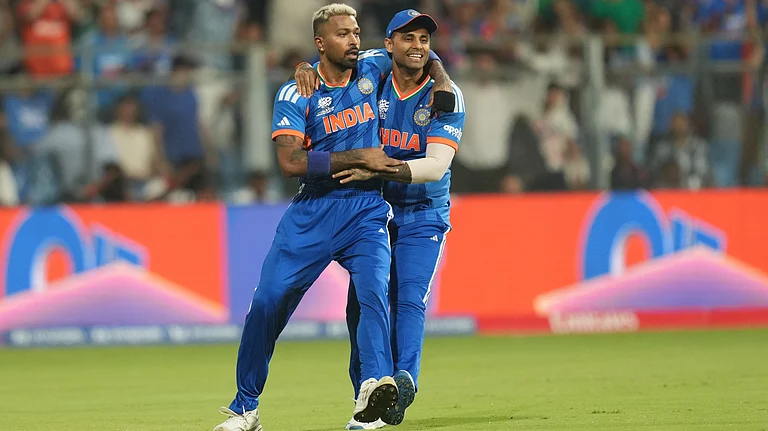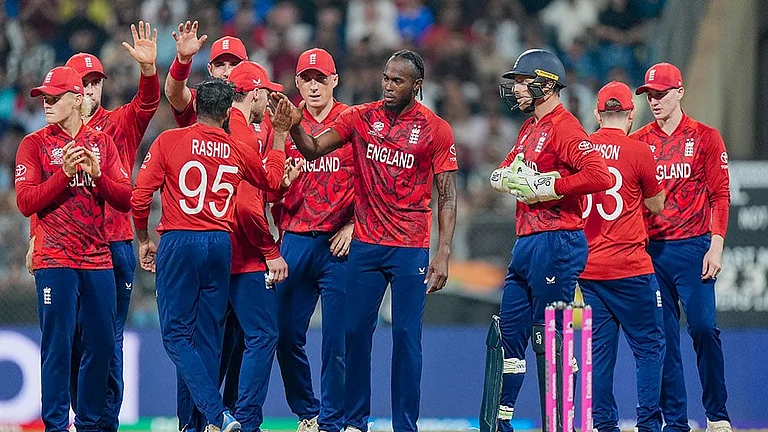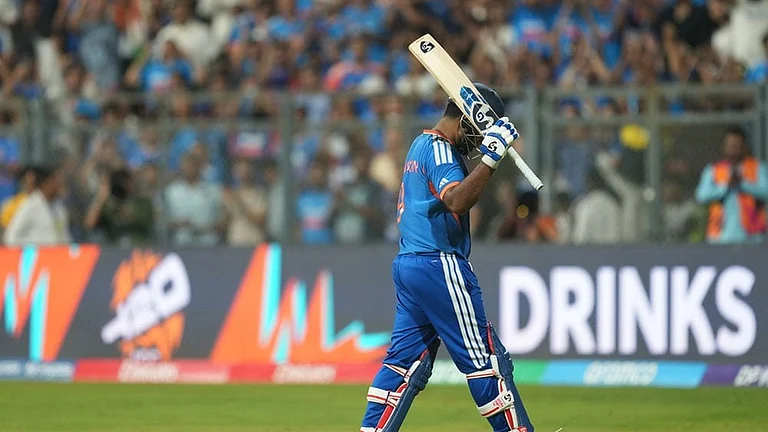Former Pakistani Prime Minister Imran Khan was arrested in Islamabad on corruption charges. The indictment pertains to bribery allegations during his premiership. Amid scenes of jostling and chaos, Khan was forcibly taken into by a large group of National Accountability Bureau (NAB) personnel.
The Al Qadir Trust case is one of several in which Khan has been formally charged. The footage of coercion right outside the Islamabad High Court has again put Pakistan in an invidious position. The latest World Bank report says the Islamic Republic’s economy is currently under severe stress with low foreign reserves and a depreciating currency.
The high inflation conditions after the 2022 floods further added to the woes of the government. The reduced agricultural output and labour opportunities for workers have been afflicting cash-strapped consumers and low-income workers. Seeing the economy in a bad shape, Khan, a popular leader among the masses, consolidated the support through his pure Urdu oratory skills and populist ‘pro-people’ policies.
The political pulse of Pakistan
Since 1947, Pakistan’s leaders have attempted to make the country a distinctive Islamic identity. From Liaquat Ali Khan to Zulfikar Ali Bhutto and Imran Khan, all have centred on following a rigidly defined theologically-influenced political pattern in their own ways.
For the newly-formed entities and dominions, stability comes slowly, but for Pakistan, it has been super slow. Here, the political pulse is measured by the number of days a government stays and stability and mandate stand second. Military preferences take precedence,
Pakistan has been paying a heavy price for being a predominantly military-driven nation. The contestation for power is marred by polarisation, corruption, an authoritarian style of dynastic politics and avarice. Khan’s arrest is not only about the corruption charges. It is more to do with ‘as the military pleases’. Pakistani Army chief Asim Munir, in an unlikely revolt against Khan, avoided much bloodshed and the anti-Khan political hysteria. For many of Pakistan Tehreek-e-Insaaf (PTI) supporters, also come from military families, this might threaten their own fragile existence.
The coveted hot seat
A country’s economic health to a large extent is also defined by the goodwill and sincerity of its government. Elections in Pakistan are due in October this year. For the people of a country, domestic affairs stand first and, this year, it is going to be the toughest fight for self-determination. As Zulfikar Ali Bhutto in 1966 said: “Pakistan was the most handsome offspring of self-determination in Asia.”
The question is — Will it prove to be one? Bhutto’s vision for an inclusive Asia always had its immediate neighbour China; he firmly believed in the evolving comity between the two nations. Surprisingly, the same China has chosen to be a silent spectator to the latest political developments in Pakistan. Notably, Khan was never happy with Beijing’s Belt and Road Initiative (BRI) because the China-Pakistan Economic Corridor (CPEC) meant Chinese companies enjoying an undue advantage on Pakistani soil. He rather wanted to renegotiate the deal of the century.
Chances of corruption and zero transparency were the main concerns for the then-Khan-led government. And this, in turn, hurts China’s expansionist flex on which it has been working for a long time. However, this was the very point where India and Pakistan’s interests aligned as the former also seeks to counter China’s ‘String of Pearls’ and ‘debt trap policy.’
After two days, the Supreme Court of Pakistan declared Khan’s arrest ‘illegal’. The decision is bound to have a ripple effect together on his supporters and mass appeal. After much frenzy, will khan be able to reach the coveted hot seat of Prime Minister of Pakistan? Will he be able to give the Islamic Republic a stable present and bright future? Only time and military will tell.
Political portrait of Imran Khan
A celebrated cricketer, Khan is largely seen as a figure of hope and promise among his supporters who believe him to be a reformer. His pompously anti-US rhetoric won him the confidence of the common masses and military to an extent that eventually helped him grab the coveted hot seat of the Prime Minister.
A rift over military leadership became one of the major causes of his removal from office in April last year. In a failed assassination bid in November, Khan sustained a bullet injury. From time to time, Khan has accused the military and Shehbaz Sharif-led government of trying to keep him out of running for the elections.
Khan terms the corruption charges a pre-planned strategy to throw him out of the prime ministerial race. The Apex Court’s decision in favour of Khan might also act as added fuel to the simmering nation’s aspirations for political stability and socio-economic development.
Major domestic issues in Pakistan
Presently, Pakistan needs to address several domestic problems that afflict it. But, as a nation, it needs human capital and increased investments in the same to fill major gaps in the health and education sectors. Besides a speedy economic recovery, the country needs an inclusive climate-resilient, economic approach.
Another factor is low female labour force participation, as per the World Bank report. There is a need for long-term planning. The country also needs a good family planning programme.
The Pakistan government’s ad hoc measures have done little to regain the weakening consumer and investor confidence. Higher borrowing and a rise in macro risks have negatively affected the country’s international capital markets. Policy uncertainty and high fuel costs along with a slowdown in domestic and global demand have also affected industry and service sector activity.
Pakistan’s microfinance sector was also negatively impacted by Covid-19 and natural disasters. Current account deficit, low international reserves, and political uncertainty led to the Pakistani Rupee’s depreciation.
The Extended Fund Facility (IMF-EEF) program provides financial assistance to countries facing serious medium-term balance of payments problems. The structural reforms agreed upon under this will help restore macro-stability while averting a public debt crisis.
In short, it’s a long way to recovery for Pakistan which is presently rattled by a number of economic and political challenges. And who will win this race against time, only time and their military leadership will tell.





















